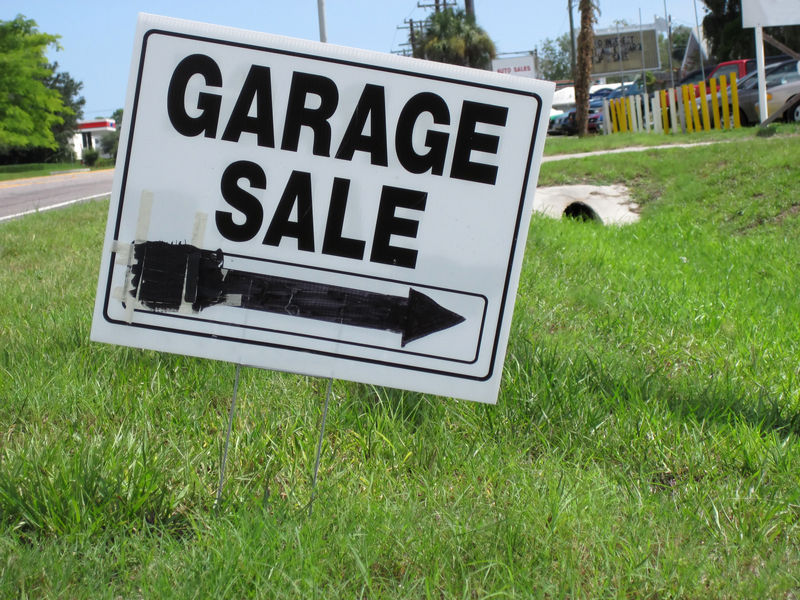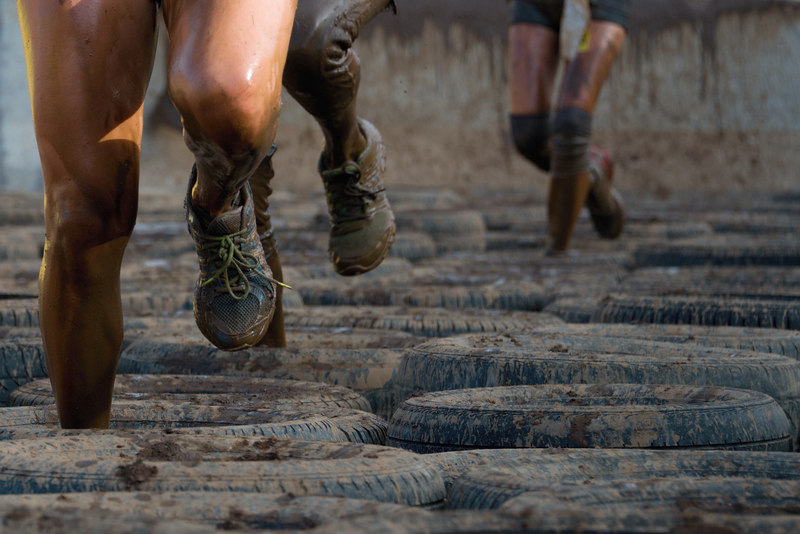Ways to Responsibly Eliminate PPE Waste from Your Life
As the world has adjusted to global health emergencies, the widespread use of personal protective equipment (PPE)--including masks, gloves, face shields, and gowns--has become a new standard. Unfortunately, the vast increase in disposable PPE has led to a significant rise in environmental pollution and waste management challenges. Reducing and properly disposing of PPE waste is crucial to preserving ecosystems and mitigating health risks. In this guide, we'll thoroughly explore responsible solutions for minimizing PPE waste, eco-friendly disposal options, and practical lifestyle changes to support a cleaner, healthier planet.

Understanding the Impact of PPE Waste
PPE, designed for single use or limited re-use, protects individuals from infectious agents but also poses an environmental problem when discarded improperly. Let's break down the real-world consequences:
- Environmental Pollution: Discarded masks and gloves often end up in water bodies and landfills, contributing to marine and soil pollution.
- Wildlife Threats: Animals can mistake PPE for food or become entangled, causing injuries or death.
- Human Health Hazards: Used PPE may carry germs, posing risks if collected by informal waste pickers or found in public spaces.
- Resource Depletion: The bulk production and consumption of disposable PPE drain valuable raw materials and energy.
Given this urgent context, learning ways to safely get rid of PPE waste is a responsibility we all share.
Switching to Sustainable PPE Alternatives
A major step in eliminating PPE waste from your life is minimizing reliance on disposables. Consider these sustainable solutions:
1. Reusable Face Masks
- Material Mattering: Choose masks made from tightly woven cotton or antimicrobial textiles--these are both washable and effective.
- Proper Care: Wash reusable masks frequently in hot water and allow them to dry completely between uses.
- Local Brands: Support artisans or businesses making eco-friendly masks, often with replaceable filters.
2. Reusable Gloves
- When Necessary: Most healthy individuals don't need to wear gloves daily. Rely on thorough handwashing instead.
- Sustainable Materials: If gloves are needed, look for ones made of reusable silicone or other long-lasting materials. Clean thoroughly after each use.
3. Transparent Face Shields
- Wash and Reuse: Face shields can be cleaned with soapy water or disinfectant wipes; avoid single-use models when possible.
- Donation and Upcycling: When no longer usable, check if local medical offices or artists can repurpose them for non-medical applications.
Best Practices for Reducing PPE Waste
1. Only Use PPE When Necessary
- Follow government and health authority guidelines--don't overuse PPE where simple handwashing and distancing suffice.
- Reserve medical-grade PPE for healthcare workers and those in high-risk environments.
2. Invest in Bulk Purchases Thoughtfully
- If PPE is required, buy in bulk to minimize packaging waste, but don't overstock and risk surplus items expiring or degrading.
3. Encourage Workplace Change
- Advocate for eco-friendly PPE options in your office or place of employment.
- Start a collection program for used PPE where safe and practical.
Proper Disposal: Ensuring Safe and Eco-Conscious PPE Waste Management
When eliminating PPE waste from your life is not possible, proper disposal is paramount. Here's how to dispose of personal protective equipment responsibly:
1. Do Not Litter
- Avoid discarding masks or gloves on the street. Littered PPE can endanger sanitation workers and wildlife alike.
2. Double-Bagging and Sealing
- Place used gloves and masks in a bag, tie securely, and dispose of with your regular trash--never in recycling bins.
- Double-bag if the PPE has been used by a sick person, to prevent contamination.
3. Don't Recycle Disposable PPE
- Single-use PPE is typically made of mixed plastics and cannot be recycled with household materials.
- Improper recycling can contaminate the recycling stream and put workers at risk.
4. Community Drop-off Programs
- Some cities and organizations have set up special bins or take-back programs for contaminated PPE. Research what's available in your community.
5. Composting Innovations
- Certain compostable masks are now on the market--always confirm these claims, and ensure you have access to appropriate industrial composting.
6. Inform, Educate, and Advocate
- Share proper PPE disposal information with your network, family, and friends.
- Advocate for increased funding for PPE waste collection and disposal from local authorities.
Creative Approaches to PPE Waste Reduction
Beyond recycling and responsible disposal, creative ideas can further tackle the problem of PPE waste in daily life:
1. Upcycling PPE
- Turn clean, used face shields into gardening protectors or art projects.
- Masks can be recrafted into pouches, patches, or cushioning for shipping fragile items (if sanitized and safe).
2. Support PPE Recycling Startups
- Certain innovative companies are developing technology to recycle non-woven PPE waste. Find and support these efforts in your area.
3. Organize Community Cleanups
- Volunteer or organize socially-distanced cleanups targeting improperly disposed PPE waste in parks, beaches, and public spaces.
Educate Yourself on PPE Materials and Eco-Labels
Making informed decisions is central to eliminating PPE waste. Know your materials:
- Polypropylene: Common in most disposable masks and gowns; not biodegradable and challenging to recycle.
- Latex and Nitrile: Gloves made from these materials rarely decompose, but nitrile may be recycled in industrial settings.
- Biobased Plastics: Look for compostable or biobased alternatives, ideally certified by credible eco-labels.
Read packaging for biodegradable or compostable certifications. When in doubt, contact the manufacturer or consult environmental databases for disposal best practices.
Policy and Government Action: Moving Forward Together
Collective action is fundamental for substantial progress. Here's how you can get involved:
- Lobby for better waste management: Advocate at municipal, regional, or national levels for increased funding and innovation in PPE recycling and collection infrastructure.
- Push for stricter regulations: Request eco-labeling laws, bans on certain types of non-recyclable PPE, or incentives for adopting greener alternatives.
- Encourage research: Support funding for R&D into biodegradable and reusable PPE for both medical and public use.

FAQs on Eliminating PPE Waste Responsibly
What should I do with used disposable facemasks at home?
Place them in a sealed bag and dispose of them in regular household waste. Do not throw them in recycling bins or litter outdoors, as they pose contamination risks.
Can I recycle surgical masks and gloves?
No--disposable masks, gloves, and gowns are made of materials unsuited for standard recycling streams. Discard in general trash unless your local area offers specialized collection bins.
Are compostable PPE products safe for home compost?
Not always. Many compostable PPE items require higher-temperature processing found in industrial composters. Check local guidelines before disposing in backyard compost.
What are the alternatives to single-use PPE?
Use high-quality reusable cloth masks, washable gloves, and disinfectable face shields whenever possible. Ensure proper care and hygiene to maximize utility and safety.
Embracing a PPE Waste-Free Future: Final Thoughts
Eliminating PPE waste from your life involves conscious decisions, from choosing reusable products and advocating for sustainable options, to disposing of personal protective equipment properly when single-use items are unavoidable. The cumulative impact of mindful habits fosters a healthier environment for everyone. Whether you're at home, in your community, or influencing policy, every small change counts. Together, we can minimize PPE waste and build a safer, cleaner, and more resilient world.
- Switch to reusable PPE wherever it's safe to do so.
- Dispose of PPE responsibly to avoid contamination and pollution.
- Stay informed about eco-innovations and share knowledge in your circles.
Start today--take the next step in eliminating PPE waste from your life and inspire others to join this essential movement.